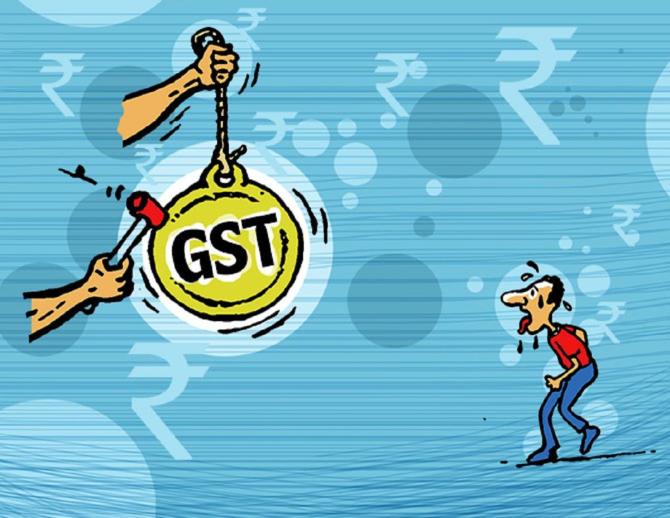'We crossed Rs 1.7 trillion in three months this financial year.'

Central Board of Indirect Taxes and Customs (CBIC) chairman Sanjay Kumar Agarwal tells Indivjal Dhasmana/Business Standard indirect tax numbers given in the Interim Budget are realistic.
Customs duty collection may go up if global activities improve but targets can be pegged on the basis of trends only, he says.
Your projection from central goods and services tax (CGST) looks modest. You have kept the Revised Estimate (RE) for FY24 at the level of the Budget Estimate (BE) for the year. Your take?
Collection from CGST till December was a little less than three-fourths of the BE for FY24.
There is always 5-6 per cent more collection in the last quarter than the previous three quarters each.
Hence, we are expecting we will meet the BE but not exceed that.
Customs revenues were modest in RE for FY24 at around Rs 14,000 crore less than what was estimated in BE. Were they not?
Customs duty collection grew 1.9 per cent till December year-on-year. We pegged revenue based on that trend.
There was an 8 per cent contraction in merchandise imports in dollar terms till December, according to the data released by the Department of Commerce.
It was mainly due to softening commodity prices. So the quantity of imports may have gone up but those declined in value terms.
There is an issue of exchange rate. You have to factor that in too.
The asking rate in BE was much higher than customs duty growth till December.
We won t be able to achieve that. If you are not maintaining the asking rate, it is better to revise the estimate.
The Interim Budget has pegged Customs duty collection in the BE of FY25 slightly below that of the BE of FY24. Do you think imports will stay depressed next year?
We made estimates for next year on the basis of collection this year. Nobody knows what will happen next year. Global conditions may suddenly improve.
That will increase trade with India. So, we may fetch better revenue. But we have to go by the trend while setting the target.
We have set the target depending on customs collection this financial year.
GST collection averaged Rs 1.67 trillion till January as against Rs 1.5 trillion a year ago. What do you think average collection will be during 2024-25?
We crossed Rs 1.7 trillion in three months this financial year. About Rs 1.7 trillion may be the average next financial year.
The Finance Bill for 2024 seeks to give effect to the GST Council's decision on registration of machinery by tobacco and pan masala manufacturers.
Is it being done because the sector is evasion-prone?
This is an evasion-prone sector. A committee set up to look at various aspects recommended in the case of certain specific commodities the machines with which packaging is done be registered on a common portal.
And now, the penalty provision has been made in case they fail to register the machines.
So, basically, it is to curb the evasion.
Which are the other evasion-prone sectors?
Besides tobacco, iron and steel.
Will similar steps be taken there too?
No. There was compounded excise duty on the tobacco sector in the pre-GST era. Compounding was done based on machines installed in factories.
After introducing GST, this compounding was no longer there because the new tax is destination-based.
We are asking manufacturers to register these machines.
Normal anti-evasion measures will apply to the iron and steel sector.
There is talk of giving tax concession to Tesla, among other electric vehicles and hybrid cars. Any movement on that?
There is no such proposal.
How do you see the recent free trade agreements (FTAs) signed with Mauritius and the United Arab Emirates and those being negotiated with the United Kingdom, the European Union, etc affecting customs duty collection?
Signing FTA is a policy decision. Whenever signed, we are bound to give concessions.
Definitely revenue collection comes down on those commodities because preferential rates are allowed.
There is no estimate available with us as to how much revenue has been affected as of now.
Feature Presentation: Aslam Hunani/Rediff.com












 © 2025
© 2025